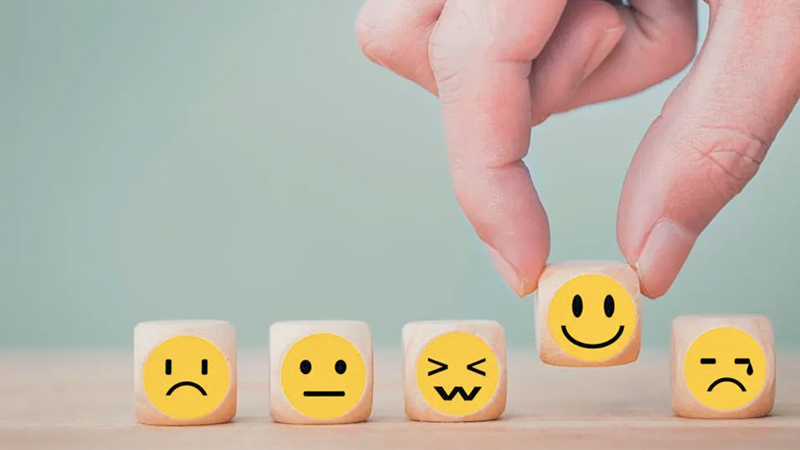 When the postman delivered the letter Joe had been waiting for he was overjoyed. He thought that the contents of the letter might fulfil one of his dreams. He felt so nervous that his hands shook when he opened the envelope. There was a brief message saying that he had been selected to the Law Faculty of a leading university. That was all he wanted to see. With a whoop of excitement he jumped up and down gleefully.
When the postman delivered the letter Joe had been waiting for he was overjoyed. He thought that the contents of the letter might fulfil one of his dreams. He felt so nervous that his hands shook when he opened the envelope. There was a brief message saying that he had been selected to the Law Faculty of a leading university. That was all he wanted to see. With a whoop of excitement he jumped up and down gleefully.
Almost all of us have experienced such strong feelings that accompany both positive and negative emotions. When I received my first appointment to an office in the dry zone, I had mixed feelings. I was happy to have a job to solve my economic problems, but the thought of having to work in a faraway office in the dry zone made me unhappy.
Most of us have a rough idea about emotions. However, it is somewhat difficult to define emotions. Psychologists have defined emotions as feelings that generally have both physiological and cognitive elements that influence our behaviour. Although we wish to remain happy all the time, we are not fortunate enough to do so. At one moment, we jump for joy and at other times we sulk in a corner of the room.
Fight or flight reaction
Emotions serve an important function. There is a link between events in our environment and our responses. When a vicious dog charges towards you, you will be faced with the fight or flight reaction. As you cannot possibly fight with a mad dog, you will try to run away from it.
On the other hand, emotions shape your behaviour. For instance, when you escape from a charging mad dog, you learn the strategy of facing such a situation. Even other unpleasant experiences will teach you a life lesson. When you experience a pleasant emotion, it will act as a positive reinforcement.
Emotions also help you to live more effectively with others.
Sometimes people shout at others or make nasty comments. Such behaviour will teach you a lesson on good behaviour in society. Society respects people who do not verbally abuse others. When a husband shouts at his wife their children might think that is their normal behaviour. Therefore, be careful when you shout at others in the presence of children.
When parents die in an accident, their children will be grief-sticken. Some grown-up children will cope with the tragic event by sharing memories and making a pact to honour the dead by excelling in their studies. However, some children will not be able to do so. They might try to withdraw into their private world. Such children usually end up with serious physical ailments and trauma. Such a child one day told her teacher that she had felt adrift in a life without meaning. The teacher explained the situation that when parents die there were ways to cope with the problem. After some time the child recovered from her illness and did well in her studies.
Behavioural Medicine
Experts in the new field of Behavioural Medicine have demonstrated what many doctors have long suspected. Now, they believe that they can increase our chances of avoiding diseases by nurturing our minds as well as our bodies. This has been explained clearly by a patient who had been diagnosed with a progressive muscle weakening disease. Doctors discovered that she had been mercilessly harassed by her former husband. She was advised to ignore her tormentor. The ex-husband gradually left her alone and her health improved tremendously.
Medical experts say emotional upsets trigger a chain of events in the body. According to one theory, two patterns emerge depending on the type of emotion. Emotions such as despair, feelings of loss or failure affect the hippocampus, the part of the brain that activates the body’s pituitary-adrenal cortical network. Hormones such as cortisol needed for the regulation of metabolism are secreted in excessive quantities from the adrenal glands. This adversely affects the immune mechanism. Finally, defences against infection will begin to diminish.
Very often we see people shouting at others in an aggressive way. Some people have no patience to wait in queue for a long time. They begin to behave violently. They might be thinking that they are smart people. They do not know how their blood pressure would rise and heart rate increase. Sometimes this type of behaviour leads to migraine, hypertension and heart diseases.
Psychological equilibrium
Human life is full of ups and downs. However, some people sail through life as if nothing has happened. They belong to a minority who have the capacity to maintain psychological equilibrium without getting stressed out. To reach this state, you need to preserve your self-esteem. Sometimes you may come across ordinary people such as three-wheel drivers and labourers living happily with their limited income. The trouble starts when you are dissatisfied with yourself. Such dissatisfaction will lead to physical ailments such as arthritis and migraines.
According to a research study of the Johns Hopkins University School of Medicine, even doctors with established tendencies towards depression, anger or anxiety fall ill at a younger age. However, physicians who had a calm temperament were immune from such diseases.
This proves that there is a direct link between emotions and diseases.
This brings us to the point that it is necessary to learn how to live with emotions. If you deny the existence of emotions, it will lead to problems.
Some elderly people feel a sense of helplessness when they are deserted by their children. They know that their children cannot live with them when they have their own families. Therefore, elderly people should not be overly worried because nobody has found a solution to such problems.
Behavioural scientists say that life is a kind of lottery because anything can happen at any moment. However, there is no need to adopt a negative attitude to life because you can minimise the incidence of disease by leading a simple life. Learn how to take care of your mind and body. The body-mind relationship should never be ignored. If you recognise this fact, half the battle is over. Although we cannot completely eradicate the causes of diseases, the foundation of a happy life is based on good physical and mental health. Have ample faith in yourself and spread love towards others. Smile, laugh and be happy. You are living in a beautiful world.









